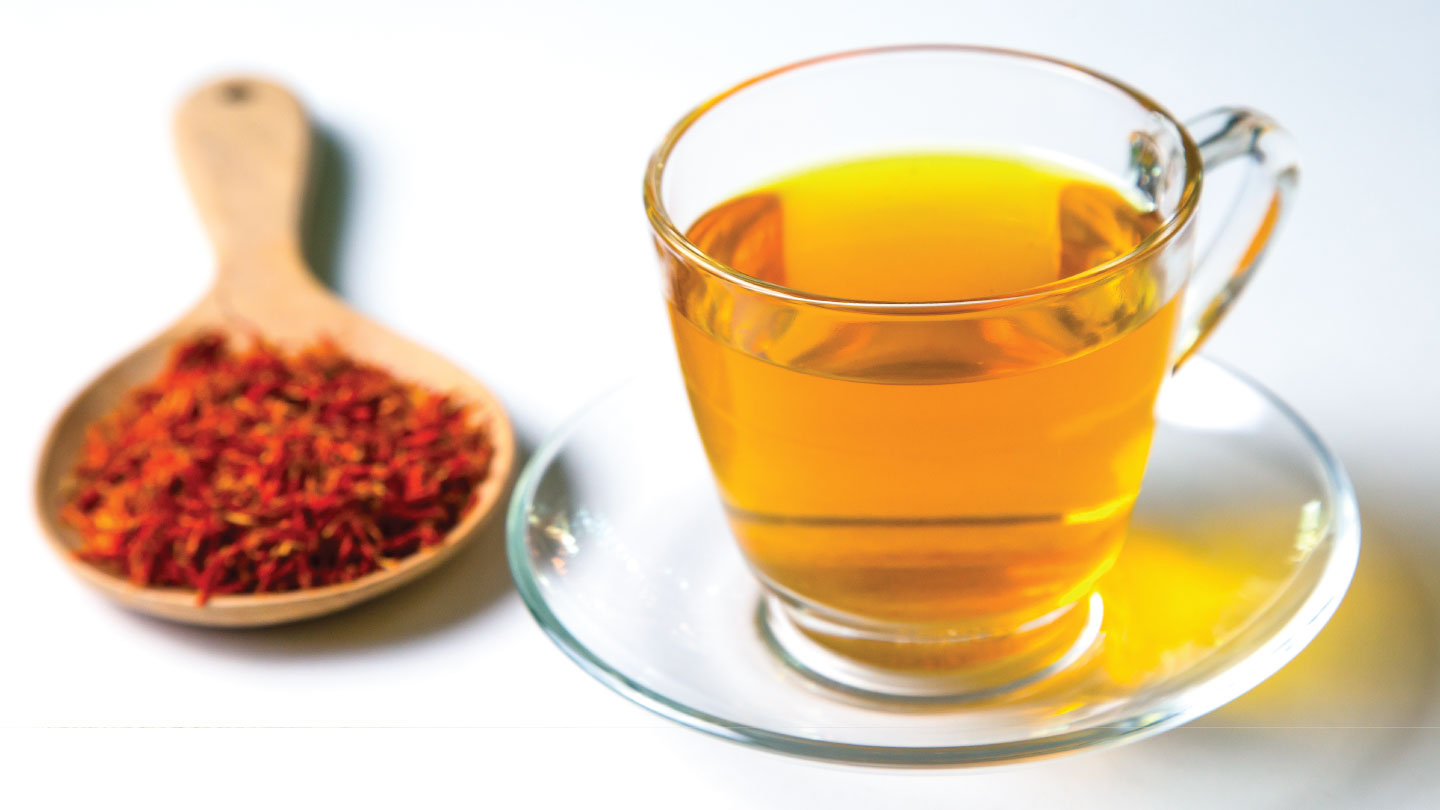Nutrition
Saffron: Nature’s Golden Lamp for Fading Moods
More than just a kitchen spice, saffron might be the solution to brightening your days and calming your mind.

Saffron (Crocus sativus) is known worldwide for its vibrant red threads, distinctive aroma, and ability to impart a golden hue to dishes. Beyond its culinary appeal, saffron has a long history of use in traditional medicine across Persia, India, and China, where it has been valued for its potential to ease stress, improve mood, and promote relaxation.
The spice owes its properties to natural bioactive compounds, including crocin and safranal, which are responsible for both its colour and aroma. These compounds may also interact with key neurotransmitters in the brain, supporting emotional balance and resilience.
Related story: Saffron Mousse
How Saffron Can Support Your Mood
Saffron’s compounds are believed to influence neurotransmitters such as serotonin and dopamine, chemicals that play a critical role in regulating mood, motivation, and overall emotional well-being. Its antioxidant and anti-inflammatory effects may further contribute to brain health, helping the body manage stress and maintain balance.
Many people report subtle improvements in mood, a sense of calm, and better sleep when incorporating saffron into their daily routine. While effects are generally mild, they can accumulate over time, supporting overall emotional well-being.
Related story: A Nutritionist’s Guide to Foods That Nourish Your Brain and Mood
What Studies Reveal About Saffron
Several studies have examined saffron’s effects on mood:
- A 2020 meta-analysis in the Journal of Nervous and Mental Disease found that saffron supplementation significantly reduced depressive symptoms in individuals with mild to moderate depression, showing efficacy comparable to standard antidepressants, with fewer side effects.
- Additional research has demonstrated improvements in overall well-being and sleep quality with daily saffron intake, suggesting potential benefits beyond mood alone.
These findings indicate that saffron may serve as a complementary approach to supporting emotional health, particularly in cases of mild or moderate low mood.
Practical Ways to Incorporate Saffron
Saffron is versatile and can easily be included in everyday routines:
- Saffron Tea: Steep a few threads in warm water for 5–10 minutes to create a calming, aromatic beverage.
- Saffron Milk: Add a pinch of saffron to warm milk, optionally with a touch of honey, for a soothing drink before bedtime.
- Culinary Uses: Incorporate saffron into rice dishes, soups, or desserts to enjoy both its flavour and potential mood-supporting properties.
- Supplements: Standardised saffron extracts (commonly 30 mg/day) are available in capsule form. Consult a healthcare professional before starting supplementation, especially if taking medications or managing health conditions.
Even small daily doses, whether through food or supplements, can become a gentle ritual that supports emotional balance and well-being.
Related story: Mood-Boosting Foods To Fade Your Monday Blues
Considerations and Safety
Saffron is generally safe when used in culinary amounts or standardised supplement doses. To ensure safety and effectiveness:
- Consult a professional if you are pregnant, breastfeeding, or taking medications.
- Monitor dosage and avoid excessive intake.
- Choose reputable brands to ensure product quality and potency.
While saffron is not a replacement for professional mental health care, it can be a supportive, natural adjunct for managing mild low mood and promoting emotional wellness.
Related story: 5 Healthy Snack Ideas That Improve Your Mood
Saffron offers more than flavour and visual appeal. Its centuries-old reputation for supporting mood is increasingly backed by research, making it a promising natural complement for emotional wellbeing. Whether enjoyed in tea, milk, food, or supplement form, saffron provides a subtle, calming influence that can enhance daily life. By incorporating this golden spice into a balanced routine of nutrition, sleep, movement, and mindfulness, individuals may experience a brighter, more resilient outlook over time.
Related story: 20 Quick Ways To Recharge And Destress
Get instant access to personalised nutrition advice just for you. Sign up here.
EXPLORE MORE
Recovery starts in the kitchen. Skip these post-exercise pitfalls if you want stronger muscles, more energy and faster progress.
Smart grocery hacks, affordable recipes, and a checklist to help you eat better for less.
Hair falling out? Skin as dry as a desert? Feeling anxious for no reason? These everyday annoyances might be your body’s way of begging for better nutrition.
Bring home the essence of a Gujarati kitchen with this spiced cabbage stir-fry; a nutritious, fuss-free recipe ideal for weekday meals.









.jpg)


